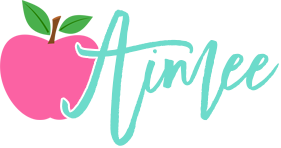How to Organize Your Classroom Files
It might be 2019, but filing cabinets and files are not a thing of the past. If you have filing cabinets and master files of important documents and resources, this post will help you tackle this space in your classroom and make it work for you.This post contains affiliate links for your shopping convenience. I earn a small commission each time someone makes a purchase through one of my links. For more information about my Disclosure Policy, please visit this link.
Maintaining organized files makes things easier on you in the long run. When your paperwork is stored where it's supposed to be, you can find what you need quickly.
#1 - DECIDE HOW YOU WANT TO USE YOUR FILING CABINET(S)
Over the years, your paperwork files have likely been pared down, but they still demand some space within the filing cabinets. If you have more than one filing cabinet, you may not need to use both of them for actual paperwork. Maybe you can use one of them for storing items like read alouds.
If you only have one filing cabinet, decide how it can best meet your needs. What do you want to store in the drawers that you do have. How many drawers do you have? Do you need all of the drawers for paperwork? Or just a few? How can you best utilize the other drawers?
#2 - DETERMINE WHICH FILES (IF ANY) NEED TO BE WITHIN REACH
Take stock of what you keep in file folders. Are there any file folders that you know you need quick and easy access to throughout the day? If so, maybe these files won't be stored in a drawer. Maybe you'd prefer to keep them on your desk in a hanging file box.
A box like the one below is compact and won't take up a lot of space. I keep one near my desk to store math fact pages that I send home with my students as needed.
#3 - PURGE YOUR EXISTING FILES
Given that many of our resources are digital these days, there's a good chance that if you haven't gone through your files in the last few years, you have some things in there taking up unnecessary space. Go through your drawers one at a time and get rid of the files you no longer need. A good way to do this is in front of the television with your favorite beverage. Bring home a few files every day for a week or so until the job is done. Toss what you don't need and take the keepers back to school the next day.
Plan to purge your files annually so they don't get out of control.
#4- FILE FOLDERS OR HANGING FOLDERS-PICK YOUR FAVORITE
Organizing your paper files can play out in a number of ways, but first, decide how you want to store those files. Do you prefer legal or letter size? Are you a hanging file folder kind of person, or do you prefer a basic file folder? Below are some fun colorful options to meet your needs.
#5 - CREATE A SYSTEM
Once you know what you want to file away, create a system that works for you. Just remember to keep it simple. A complicated system is an overwhelming system.
One way to keep it simple is to break things up into categories: Reading, Writing, Math, etc. From there, color code your files based on those categories. Use pink folders for your various Reading files, yellow folders for your math files, and so on. Group the color categories within the drawer so you can quickly and easily find what you're looking for.
Instead of using colored folders, you could opt to use colored labels.
Label the outside of your drawers, if that helps.
#6 - KEEP THINGS TIDY
File papers daily. Don't let things pile up. It only takes a few minutes to file a few pieces of paper. Remember: if it takes less than 2 minutes, just do it.
Honestly, things are likely to get lost or misplaced if you let them sit around for days and days before putting them back into their files. Spend a few minutes each day keeping on top of the filing, instead of wasting large chunks of time down the road.
#7 - BE SELECTIVE
You don't have to file everything. You don't need to keep everything. This takes up too much of your time, and ultimately, your space. Make note of important information from memos, then throw them away. No need to file papers like that.
Only keep what's most important to you. What's important? Well, ultimately, that's up to you. But, maybe it's important to you to keep hard copies of your observations and evaluations, parent handouts that you know you use at the beginning of each year, or materials that you use to supplement each unit of your reading program.
I hope you find this post helpful. Happy organizing!
DON'T FORGET IT, PIN IT!

Share It:










